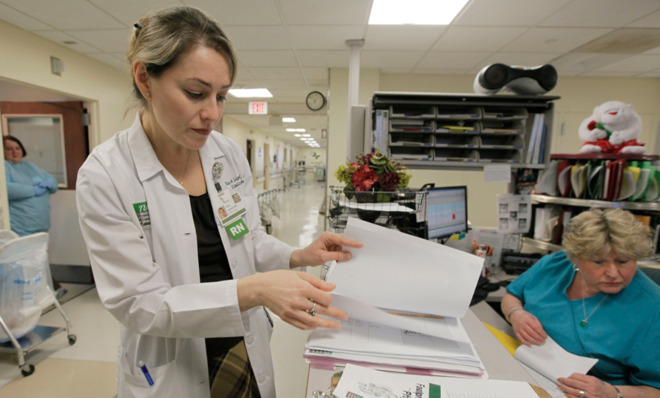This is a perfect example of why Democrats aren't the party of science
Why do "naturopathic doctors" get feted and nurses get restricted?

A free daily email with the biggest news stories of the day – and the best features from TheWeek.com
You are now subscribed
Your newsletter sign-up was successful
This probably passed you by, but last October 7-13 was "Naturopathic Medicine Week," a distinction bestowed unanimously by the U.S. Senate recognizing "the value of naturopathic medicine in providing safe, effective, and affordable health care." And if you missed it, fear not! Sen. Barbara Mikulski (D-Md.) has introduced another resolution to celebrate it this October, too. This is a baffling move for the so-called party of science.
For the uninitiated:
Naturopathy, or naturopathic medicine, is a system of medicine based on the healing power of nature. Naturopathy is a holistic system, meaning that naturopathic doctors (N.D.s) or naturopathic medical doctors (N.M.D.s) strive to find the cause of disease by understanding the body, mind, and spirit of the person. [University of Maryland Medical Center]
If that doesn't sound very scientific, naturopaths agree. In one revealing interview, naturopathic oncologist Daniel Rubin states that "one of the greatest challenges we face [as naturopaths] is the widespread public belief in the scientific method."
The Week
Escape your echo chamber. Get the facts behind the news, plus analysis from multiple perspectives.

Sign up for The Week's Free Newsletters
From our morning news briefing to a weekly Good News Newsletter, get the best of The Week delivered directly to your inbox.
From our morning news briefing to a weekly Good News Newsletter, get the best of The Week delivered directly to your inbox.
But while naturopaths eschew the scientific method, they very much want to mimic the trappings of the medical mainstream. To that end they have created their own accredited degree granting schools, their own professional associations, and have sought licensing from the state as a sign of legitimacy. And while naturopathy has been linked to various negative health outcomes, including death, many states have gone along. Seventeen states license "naturopathic doctors" and some states allow NDs to prescribe drugs or even perform minor surgery.
There are a lot of lessons one could draw from this, ranging from the Democrats' claimed status as the "party of science" to the wisdom of letting legislators decide what is and isn't "safe, effective, and affordable health care." But instead, I'd like to focus on how the treatment of naturopathic doctors compares to another more respectable group of medical professionals: nurses.
Via occupational licensing, states restrict the scope of practice that nurses can engage in both with and without the supervision of a physician. In some states, these restrictions are severe. Texas, for example, requires Advanced Practice Nurses to be supervised by a physician. And even with physicians' supervision, nurses are not allowed to perform many medical services at all. As a result, medical care is more expensive.
While proponents of these restrictions argue that they are necessary to protect public health and safety, the evidence does not bear this out. Studies have repeatedly shown that for a substantial proportion of medical services (ranging from 25 percent for some specialties to 90 percent for primary care) nurses perform as well if not better than licensing physicians.
A free daily email with the biggest news stories of the day – and the best features from TheWeek.com
But as the naturopathy example shows, public health is really not the concern here. If it were, then giving greater scope of practice to naturopaths (who don't provide effective medical care) than to nurses (who do) would make no sense. As with most examples of occupational licensing, the real goal is to increase salaries for those within the guild by restricting competition.
And it's working. The United States has some of the most expensive doctors in the world. These restrictions have also unsurprisingly led to physician shortages, and calls for price controls and other regulations. But it doesn't have to be that way. Our hospitals are full of the answer to the physician shortage. We just need to give people the same freedom to choose a good nurse that they already have to choose a bad doctor.
Josiah Neeley is a Policy Analyst for the Armstrong Center for Energy and the Environment at the Texas Public Policy Foundation.
-
 Local elections 2026: where are they and who is expected to win?
Local elections 2026: where are they and who is expected to win?The Explainer Labour is braced for heavy losses and U-turn on postponing some council elections hasn’t helped the party’s prospects
-
 6 of the world’s most accessible destinations
6 of the world’s most accessible destinationsThe Week Recommends Experience all of Berlin, Singapore and Sydney
-
 How the FCC’s ‘equal time’ rule works
How the FCC’s ‘equal time’ rule worksIn the Spotlight The law is at the heart of the Colbert-CBS conflict